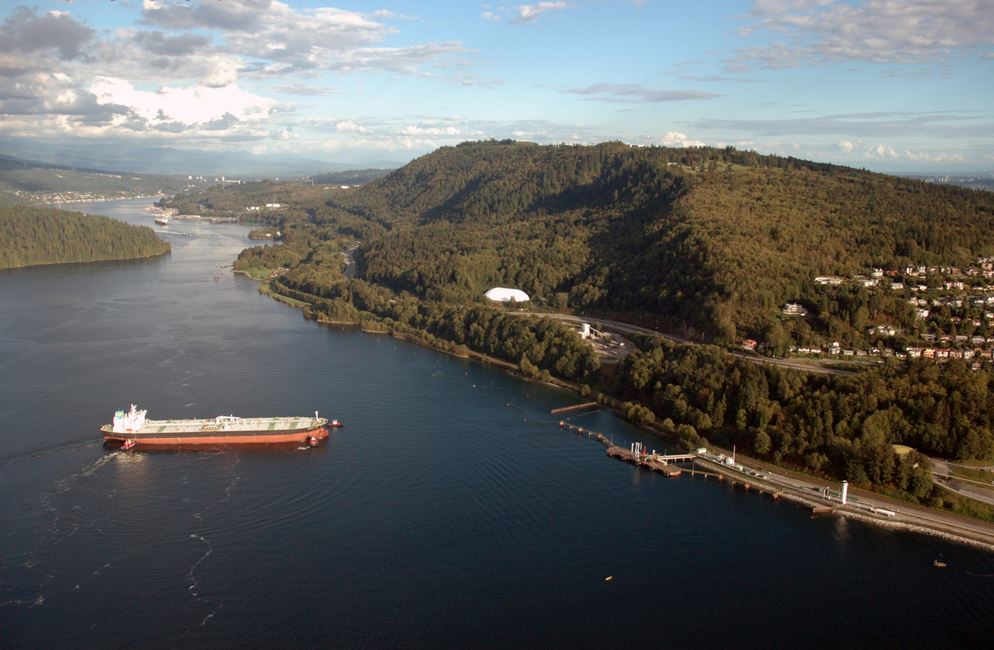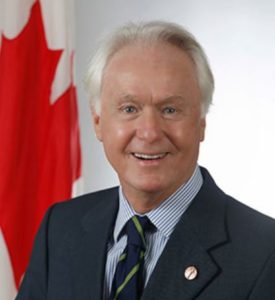Alberta senator pushes for federal action on Trans Mountain expansion

By Peter Kennedy

Alberta Senator Doug Black on Wednesday March 28 moved a second reading of the bill he introduced in February (2018) in a bid to have Ottawa declare that Kinder Morgan Canada‘s [KML-TSX] stalled Trans Mountain pipeline is in Canada’s national interest.
Despite opposition from environmental activists, and governments at the provincial and municipal level in British Columbia, the pipeline expansion project should proceed for that reason.
Bill S-245, the Trans Mountain Pipeline Project Act, proposes to use the declaratory power of the Constitution Act, a power that has been used over 400 times in the history of Canada.
Once the power is used and affirmed by the legislature, all ancillary works to the pipeline are included in federal jurisdiction. Therefore, local roads, local bridges, power connections, storage facilities and anything related to the construction, operation or maintenance of the pipeline becomes the jurisdiction of the Government of Canada
“This bill will provide a foundation for federal action,” Black said. “The Government of Canada has indicated by words their intention.”
He is referring to the fact that the Government of Canada granted its approval for the Trans Mountain Expansion Project in November 29, 2016. The National Energy Board has also concluded that the pipeline expansion project is in the Canadian public interest.
“However, we need to create a situation where action can be taken to advance this project, which is in the general interest of Canada,” Black said.
When he initially introduced Bill S-245, Black warned that not having access to energy markets is costing Canada billions of dollars and the expansion of the Trans Mountain pipeline system between Edmonton, Alberta and Burnaby, B.C. is a critical solution to this problem, he said.
That was because it was proposed in requests form oil companies to help them reach new markets by expanding the capacity of North America’s only pipeline with access to the West Coast of Canada.
However, the Trans Mountain Expansion faces significant hurdles, including opposition from British Columbia Premier John Horgan who has vowed to “use every tool in the toolbox” to prevent it from going ahead.
British Columbia’s ruling New Democrats have asked to courts to clarify whether or not it can use provincial powers to restrict Alberta’s bitumen flows, while conducting scientific studies to determine the environmental impacts of bitumen oil spills.
As well, the City of Burnaby is taking its fight against construction of the Trans Mountain pipeline expansion to Canada’s highest court, after lower courts and the National Energy Board rejected its challenge.
Burnaby Mayor Derek Corrigan says he doesn’t believe Burnaby should pay for the several hundreds of thousands of dollars in policing costs of the long running protests against the project in his city. So far, four police officers have been hurt during the protests.
Corrigan said the city plans to ask the Supreme Court of Canada to hear its challenge to the National Energy Board decision, which said Kinder Morgan is not required to comply with two sections of Burnaby’s bylaws on land and tree clearance as it expands the pipeline.
The city of Burnaby filed for leave to appeal the NEB decision in February, but the Federal Court of Appeal denied its application last week.
Senator Black said these arguments are precisely why Ottawa needs to declare that the pipeline expansion is in the national interest.
“The effect of that, of course, is to exclude the governments, in this case, of British Columbia and, in this case, the municipalities of Burnaby and Vancouver, from having any legislative authority,” he said.
“That is why you have to declare a work to be for the general advantage of Canada.”
Black went on to note in his speech that Kinder Morgan has been aggressively pursuing is pipeline expansion for seven years now.
“They have spent hundreds of millions of dollars and they have played by every rule put before them,” he said.
“They have never complained about the hurdles put before them and now they are in a position where they’re facing civil disobedience to developing legitimate projects, and the City of Burnaby is not prepared to pay for overtime policing. What is a business supposed to think?”
Statistics show the pipeline project is in the national interest, Black said during a recent interview with Resource World.
“Alberta is the number one beneficiary because of royalties. Ontario, B.C. and Quebec also benefit because of the groundwork and manufacturing necessary to build the pipeline. The oilsands create thousands of jobs, pipeline construction creates thousands of jobs, and millions of dollars will spin off in revenue and taxation,” said Black. “If we plan to do all the things that we want to do in Canada like building bridges, schools, hospitals, prisons, fund reconciliation with First Nations and pay for peace keeping efforts, we need the money from taxation and royalties.
“This is in our interest. Inward investment into Canada is frozen. We cannot build a nation that either Canadians don’t invest in or others don’t invest in,” Black said. “Trans Mountain has become a symbol of our complete inability to get things done in the face of legitimate authority.”
The existing Trans Mountain pipeline is currently maxed out as are oil trains from Alberta.
